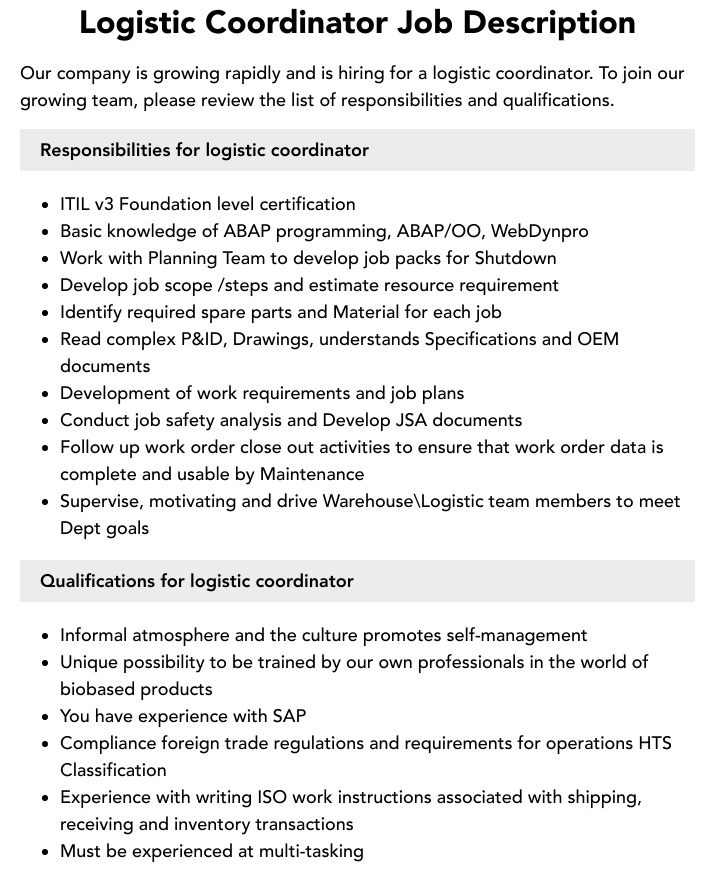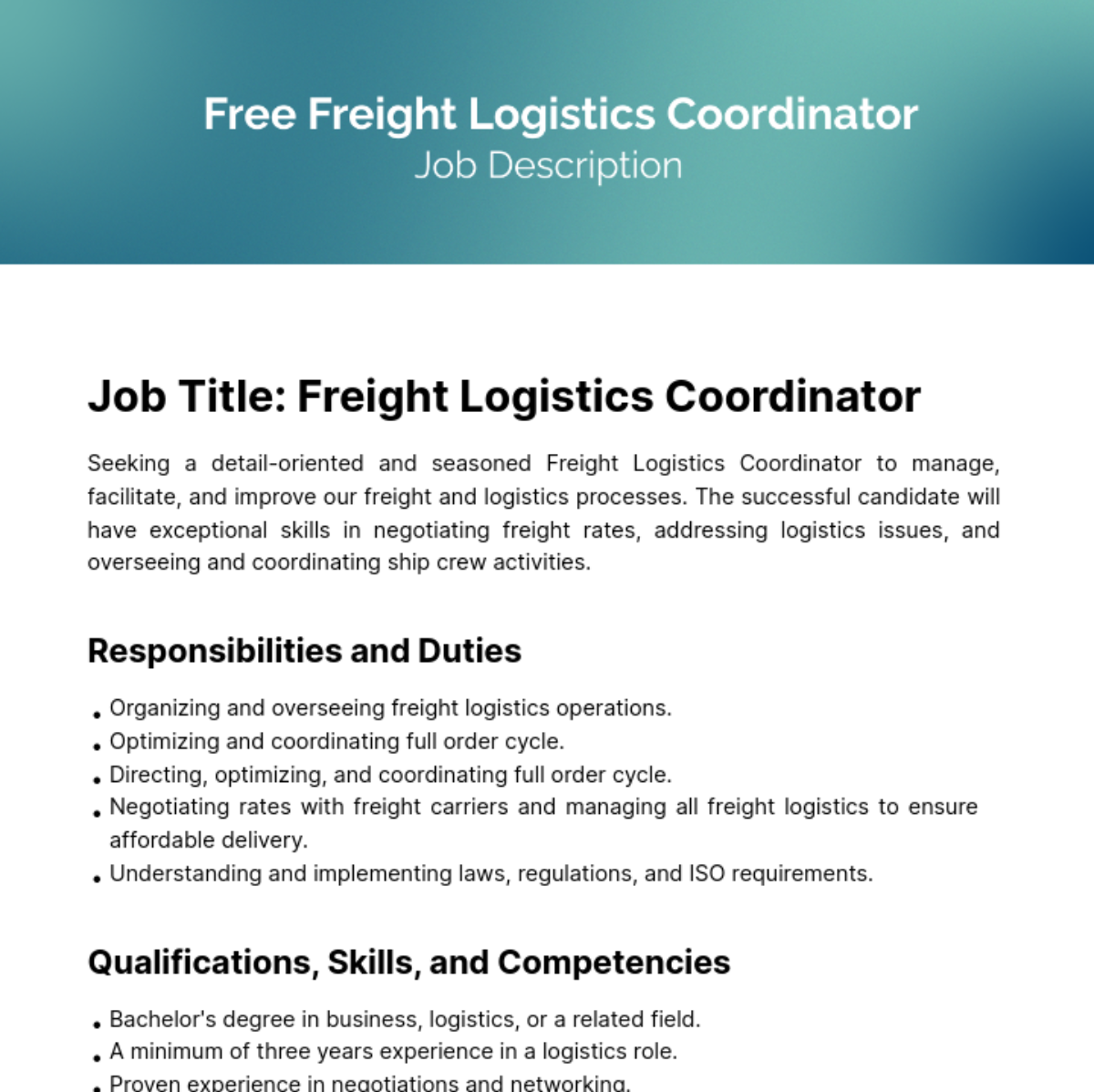Logistics Coordinator Job Description: Key Responsibilities & Skills

A Logistics Coordinator plays a vital role in ensuring the smooth flow of goods, services, and information within a supply chain. This position requires a blend of organizational skills, technical expertise, and strategic thinking to manage logistics operations efficiently. Whether you’re exploring a career in logistics or looking to hire a coordinator, understanding the key responsibilities and skills is essential. This post delves into the core duties, qualifications, and competencies needed to excel in this role, tailored for both informational and commercial audiences.
Key Responsibilities of a Logistics Coordinator

The primary focus of a Logistics Coordinator is to oversee the movement, storage, and distribution of goods. Below are the core responsibilities that define this role:
- Supply Chain Management: Monitor and optimize the supply chain to ensure timely delivery of products.
- Inventory Control: Manage stock levels and ensure accuracy in inventory records.
- Vendor Coordination: Liaise with suppliers, carriers, and other stakeholders to maintain seamless operations.
- Documentation: Prepare and maintain shipping documents, invoices, and compliance records.
- Cost Management: Analyze logistics costs and identify opportunities for cost reduction.
📌 Note: Effective communication and problem-solving skills are critical for resolving logistical challenges.
Essential Skills for a Logistics Coordinator

To succeed in this role, a Logistics Coordinator must possess a combination of technical and soft skills. Here’s a breakdown:
- Analytical Skills: Ability to analyze data and make informed decisions.
- Attention to Detail: Ensuring accuracy in documentation and inventory management.
- Time Management: Prioritizing tasks to meet deadlines and handle multiple projects.
- Technical Proficiency: Familiarity with logistics software and tools (e.g., ERP systems, TMS).
- Interpersonal Skills: Strong communication and collaboration abilities for team and vendor interactions.
Logistics Coordinator Job Description Checklist

For employers crafting a job description or candidates preparing for the role, here’s a quick checklist:
- Highlight key responsibilities such as supply chain management and inventory control.
- Emphasize required skills like analytical thinking and technical proficiency.
- Include qualifications such as a degree in logistics, supply chain management, or related field.
- Mention experience requirements, typically 2-3 years in logistics or a similar role.
- Specify software knowledge (e.g., SAP, Oracle) if applicable.
In summary, a Logistics Coordinator is instrumental in maintaining the efficiency and effectiveness of supply chain operations. By mastering key responsibilities and honing essential skills, individuals in this role can significantly impact a company’s logistical success. Whether you’re hiring or aspiring to become a Logistics Coordinator, this guide provides a clear roadmap to navigate the demands of the position.
What qualifications are needed for a Logistics Coordinator?
+
A degree in logistics, supply chain management, or a related field is typically required. Prior experience in logistics or a similar role is also essential.
What software skills are important for a Logistics Coordinator?
+
Proficiency in logistics software like ERP systems, TMS, and tools such as SAP or Oracle is highly valuable.
How can I improve my chances of becoming a Logistics Coordinator?
+
Gain relevant experience, develop analytical and interpersonal skills, and stay updated on industry trends and technologies.



